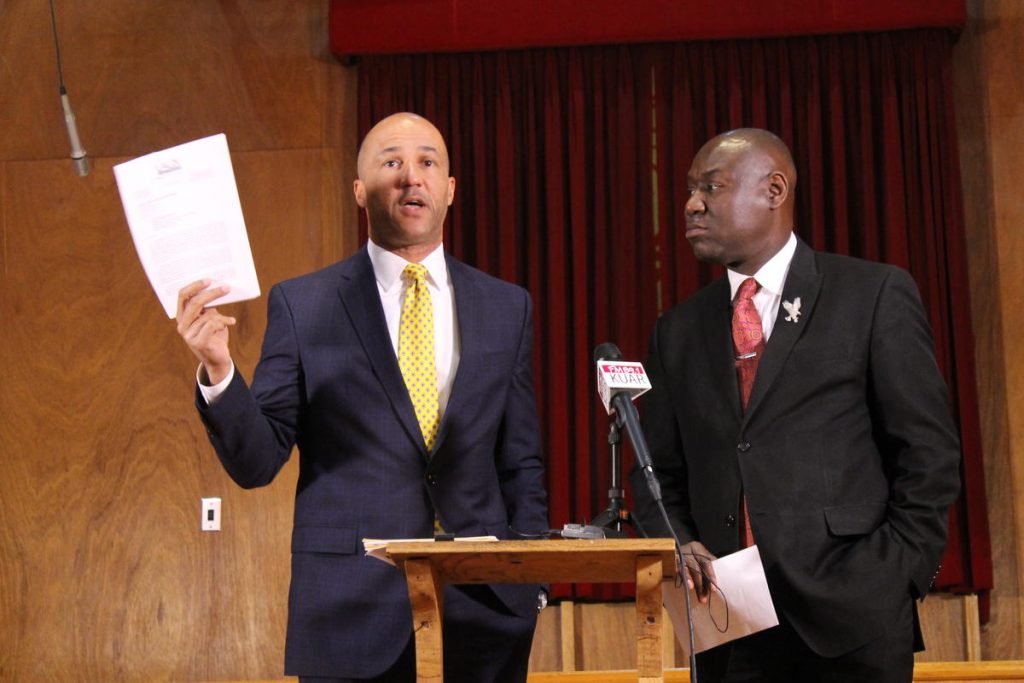Photo Caption: Civil rights attorneys Mike Laux (left) and Benjamin Crump at a press conference in December regarding the Little Rock Police Department’s use of no-knock raids. CREDIT MICHAEL HIBBLEN / KUAR NEWS
By MICHAEL HIBBLEN • JUN 14, 2019 on KUAR
A civil rights attorney representing several people who claimed they were unfairly targeted by Little Rock police with no-knock raids says he’s encouraged by the department’s effort to reform its policy. On Wednesday, Police Chief Keith Humphrey unveiled a new threat assessment system that will be used to determine when carrying out a search warrant rises to the level of a no-knock raid.
Attorney Mike Laux spoke alongside 12 people in December who shared their experiences of police using explosives to enter their homes. Four others had previously filed a federal civil rights lawsuit against the city regarding such raids. In an interview with KUAR News, Laux said the change in policy is welcomed.
“On behalf of those clients, we are gratified that the new mayor, Frank Scott [Jr.], and the new [police] chief, Chief Humphrey, have decided to address these issues rather than burying their heads in the sand which, in my experience, has been the unfortunate norm for the city when confronted with pretty irrefutable evidence of police misconduct,” Laux said.
The department practice, which Laux has said violates residents’ Fourth Amendment rights, drew national attention last year when The Washington Post ran an opinion column from Radley Balko with the headline “Little Rock’s dangerous and illegal drug war.” It featured the story of Roderick Talley and dramatic security camera footage of officers raiding his home. A police informant allegedly said Talley had sold him cocaine, but police only found a misdemeanor amount of marijuana.
Other targets of LRPD raids tell similar stories. In addition to Roderick Talley, I’ve talked to nine other people who have been raided by the LRPD’s narcotics unit over the past two years. I’ve also reviewed more than 100 search warrants executed by the unit since 2016. According to policing and Fourth Amendment experts, these interviews and warrants show that the LRPD narcotics cops and SWAT teams are routinely violating the Fourth Amendment rights of Little Rock residents. They’re also putting people at unnecessary risk. And there’s strong evidence that, in some cases, officers have made demonstrably false statements under oath.
While Laux called the change an improvement, he said it only brings the department up to the way it should have been behaving all along. Laux also said this doesn’t change the department’s history of misconduct.
“What these changes to the policy have done based on my review of the material is really just gotten the city of Little Rock and the LRPD up to baseline where they should have been all along,” Laux said. “While we applaud these efforts, I don’t want to overstate their reach because really, what we’re looking at here is taking a system that was decidedly below baseline and now we’re going to bring it up to baseline.”

